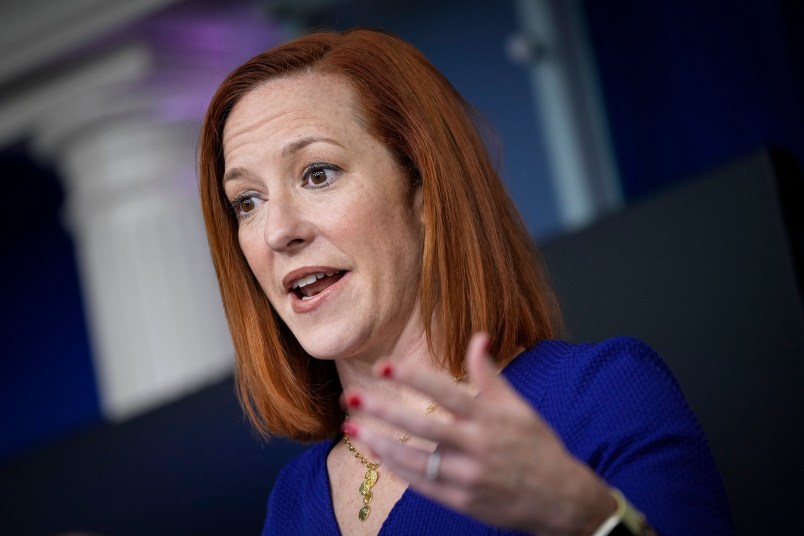White House press secretary Jen Psaki on Wednesday stood by President Biden’s announcement the day before that the country has secured enough doses of COVID-19 vaccine to inoculate the country’s adult population by the end of May. However, Psaki also shared the administration’s concerns surrounding vaccine hesitancy.
Asked about the White House’s concern that vaccine hesitancy could impede the country from achieving herd immunity sooner, Psaki replied that although the President expects that there will be enough vaccines for all Americans by the end of May, the country will eventually reach a point where there is more supply than demand.
“We will have more vaccines than people who want vaccines,” Psaki said. “That feels hard to believe at this moment in time.”
Psaki stressed that the Biden administration is concerned about vaccine hesitancy in a range of communities across the country, especially in communities of color where there has been a higher level of vaccine hesitancy.
Psaki then pointed to a health equity task force led by Dr. Marcella Nunez-Smith of Yale aimed at addressing racial and ethnic disparities in health care access. The White House press secretary said that the federal task force will be responsible for closely examining issues related to vaccine hesitancy, and it plans to reach out to communities that may be skeptical of vaccine safety and efficacy.
Biden’s announcement on Wednesday capped a months-long search for doses to cover the U.S. population that began last year as the vaccines were being developed, but kicked into high gear in December. Then, it emerged that the Trump administration had failed to exercise an option in its contract with Pfizer for millions of additional doses.
That bottleneck in dose supply initially meant that the U.S. may not have had enough vaccine to cover the population until the fall.
But since January, Biden officials have focused on increasing the supply of doses. They signed new contracts with Pfizer and Moderna, which upped those firms’ supply, and invoked national security powers to speed up supply chains for the shots.
But it was on Saturday when the FDA authorized the Johnson & Johnson vaccine for emergency use that put the country over the edge. That ushered in millions more doses, giving the country extra vaccine and allowing it to inoculate more people sooner.
Watch Psaki’s remarks below:



